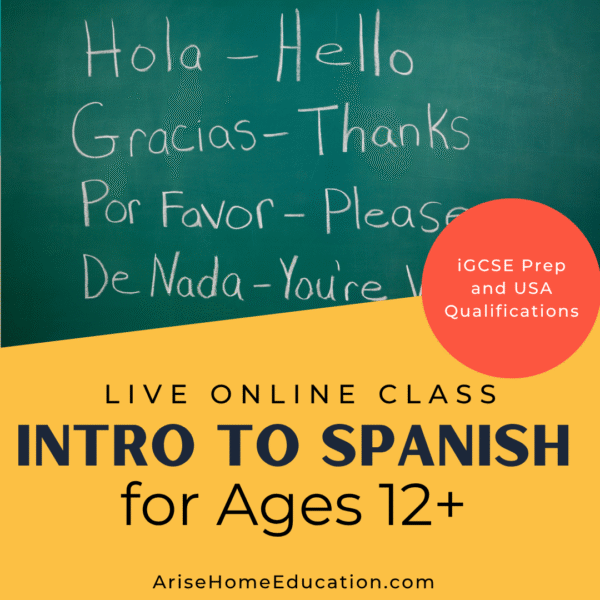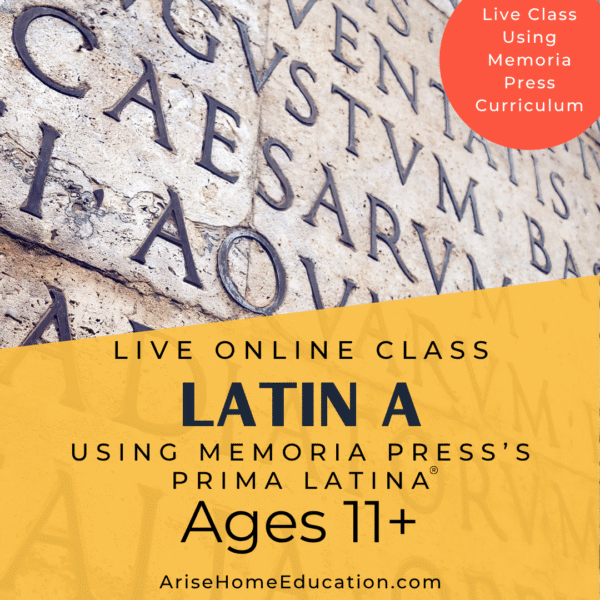The Cognitive Benefits of Learning World Languages
Engaging in the study of world languages plays a significant role in cognitive development. It sharpens critical thinking and problem-solving skills, and research shows that bilingual children often excel academically. They also tend to develop stronger social skills and a greater awareness of different cultures. Additionally, language learning enhances memory and attention, offering homeschoolers a wealth of enriching educational experiences in ways that traditional classrooms might not provide.
So let’s delve into creative and engaging ways to teach languages to homeschoolers. We’ll explore various world languages suitable for high school and middle school curriculum requirements and share strategies that include fun resources and activities for all ages.
From practical tips to imaginative projects, our goal is to inspire families to make language learning both enjoyable and effective.
Watch this TED Talk: How Language Shapes the way we think.
The Joy of Learning World Languages in a Homeschool Environment
Embracing world languages in a homeschool setting is a great way to connect with diverse cultures and ideas. One of the greatest advantages of homeschooling is the ability to customize language lesson plans to fit your child’s unique interests. This personalized approach not only boosts motivation but also keeps kids engaged in their learning journey. Families can explore languages that resonate with their values and heritage like Biblical Hebrew or Scottish Gaelic. Some teens may want to learn a modern language like German.
Not sure which will be your child’s choice?
This sample lesson bundle will help you choose.
Fun and Creative Ways to Introduce World Languages
Engaging Games and Interactive Activities
Games can make learning a modern language or an ancient language an exciting adventure! They create a lively atmosphere that captivates young learners. High school curricula can incorporate word games, flashcards, and role-playing activities, which are equally effective for middle school students. By using games, both older children and younger children can practice their speaking skills and expand their vocabulary in a fun way while having a blast.
Incorporating Multimedia Resources
Multimedia resources such as videos, apps, and music can significantly enrich the language learning experience. For instance, students might enjoy watching TV shows or films in Scottish Gaelic or German, allowing them to hear the language in authentic contexts. Music is another delightful way to absorb a new language, while educational apps can offer tailored exercises that make learning both accessible and fun for homeschoolers.
Utilizing Storytelling and Literature
Storytelling and literature are powerful tools for language instruction. Reading Old Testament stories in languages like Biblical Hebrew helps students grasp context and culture, sparking their interest in the language and its heritage. Encouraging students to create their own stories fosters creativity, making this approach especially effective for Scottish Gaelic and German high school curriculums, as it reinforces vocabulary and grammar in an enjoyable way.
By incorporating these creative methods, homeschooling families can turn language learning into an exciting and rewarding experience!
World Languages in the Middle School Curriculum
Exploring Exciting Language Options for Middle Schoolers
Middle school is a fantastic time for students to dive into the world of languages! While popular choices like Spanish, French, and German are always in demand. There’s also a world of unique languages such as Biblical Hebrew and Scottish Gaelic. Any of these are a great option for students wanting to connect with their heritage or delve into unique languages. These languages not only provide students with valuable skills but also open the door to rich cultural experiences and diverse global perspectives. For homeschoolers, the ability to choose a language based on personal interests or family heritage makes learning even more engaging and meaningful.
Fun and Engaging Language Activities
To create a lively and effective language curriculum, it’s important to include age-appropriate learning exercises. Fun activities like language games, interactive storytelling, and multimedia quizzes can really boost retention and make learning enjoyable! Projects like cooking traditional dishes or creating artwork inspired by the culture can enhance both language skills and creativity. Plus, using technology can offer even more resources for students, allowing them to practice and immerse themselves in the language from anywhere.
Emphasizing Cultural Context in Language Learning
Learning a new language is about so much more than just vocabulary and grammar. Incorporating cultural context into lessons enriches the entire experience. Understanding customs, traditions, and historical backgrounds helps students appreciate different perspectives. Discussions about cultural nuances foster empathy and global awareness—skills that are essential in our interconnected world.
At Arise, we have several free resources to help you decide which of the world languages for homeschoolers will best fit your learning goals. Our free lessons tater course is the best way to see which language your teen may enjoy learning in an online program

Foreign Language
Arise Home Education Foreign Language for ages 11-17.
Make World Languages Part of Your High School Curriculum Plan
Enhancing Language Skills for High School Students
High school is a pivotal time for students to refine their language skills. This stage is crucial for developing fluency and deepening understanding. Students will engage with complex texts and conversations, expanding their vocabulary and grammar knowledge, which is essential for reaching advanced levels of proficiency.
Offering Advanced Language Courses
High school curricula can introduce advanced courses in languages like Biblical Hebrew, German, and Scottish Gaelic. Each of these languages brings unique cultural insights. For instance, Biblical Hebrew connects students to ancient texts and traditions, while German opens the door to a rich literary and historical landscape. Scottish Gaelic allows students to explore Scotland’s vibrant cultural heritage. Each language presents its own set of challenges and rewards, making the learning journey even more exciting.
Preparing for Language Proficiency Assessments
As students prepare for language proficiency assessments in high school, it’s important for them to demonstrate their skills through exams and certifications. These qualifications not only enhance college and university applications but also build confidence in using a foreign language. A well-structured curriculum ensures that students are well-prepared to meet these goals effectively, setting them up for future academic and career success.
Successful Homeschool Language Programs: Inspiring Examples
Case Studies of Homeschoolers Who Thrived in Language Learning
Many homeschooling families can achieve incredible success in mastering different languages. For instance, one family may embrace a Biblical Hebrew curriculum, which helps their children connect with ancient texts. This not only improves their language skills but also enriches their understanding of cultural heritage. Another homeschooler might choose to learn Scottish Gaelic, allowing them to reconnect with their roots and engage in community experiences. These examples illustrate how customized learning paths can lead to impressive language proficiency.
World Languages Curriculum Resources:
Exploring Textbooks, Online Courses, and Community Classes
Homeschoolers enjoy a wealth of resources that make learning languages both fun and effective. Textbooks provide a solid foundation, while online courses offer the flexibility to learn at a comfortable pace with a built-in learning community. Local community classes can also facilitate social interactions, making the process more enjoyable. Many families find success by blending these resources to create a comprehensive curriculum.
For middle schoolers, incorporating multimedia and interactive tools can enhance understanding and retention. High school curricula can delve into advanced language skills, equipping students for real-world applications.
The best homeschool foreign language curriculum for online classes for high schoolers will have native speakers – especially for modern foreign languages. For ancient languages, instructors who have studied at a university level are able to teach in an effective way because of their in-depth understanding of the language and ancient texts. Our tutors at Arsie Home Education know how to help students learn well by providing engaging lessons, and weekly homework to practice their language skills with their family and friends – in person or online.
World Languages Success and Foreign Language Requirements
Whether you follow the USA Qualification Model (High School Diploma and transcript) or are considering sitting a UK exam, Arise foreign language courses are designed to help your homeschooler achieve their academic goals. Our unique approach allows students to gain high school credit or prepare them for UK exams – all in the same class.
Advice from Seasoned Homeschoolers on Effective Language Teaching
Experienced homeschoolers have some fantastic tips for teaching world languages. They suggest using immersion techniques like watching movies and reading books in the target language. Connecting with a native speaker online can further boost language skills. Setting achievable goals is key to staying motivated, and integrating cultural elements such as food and music makes learning even more enriching. By fostering a supportive environment, parents can encourage their children’s curiosity and exploration of foreign languages.
Infusing Cultural Experiences into World Languages Learning
Exploring Cultural Festivals and Events
Incorporating cultural festivals and events is a vibrant way for homeschoolers to enhance their primary or second language learning. Attending a local German festival or a Scottish Highland games event can provide unforgettable, immersive experiences. These occasions often include traditional music, dance, and delicious food, giving learners the chance to practice their language skills in authentic settings. Engaging in conversations with native speakers or fellow learners can significantly expand vocabulary and offer insights into cultural nuances.
Discovering Cooking and Cuisine
Cooking is a fantastic avenue for language learning! When students prepare German dishes or Scottish recipes, they not only practice their language skills but also gain insight into cultural traditions. Introducing ingredients, cooking vocabulary, and meal customs through hands-on experiences makes learning both tangible and enjoyable. For example, following a recipe for an ancient Biblical Feast can create a deeper connection to both the language and its cultural roots.
Real-Life Experiences and Connections
Establishing a connection to the language through real-life experiences is essential. This involves going beyond textbooks and grammar drills. By participating in language exchanges, cultural workshops, or travel focused on language immersion, students can see how their learning applies in real life. Whether chatting in Scottish Gaelic at a local event or navigating a German-speaking market, these experiences build confidence and fluency. Ultimately, this holistic approach fosters a deeper appreciation for world languages among homeschoolers.
Conclusion and Resources for Homeschool Language Learning
Embracing creative approaches to language learning can truly enrich the homeschooling experience. These engaging methods not only make acquiring a new language fun but also cater to various learning styles, helping students grasp new concepts more effectively. By weaving in activities like games, storytelling, and music, learners can form a deeper connection with languages from around the world. This connection not only aids in retention but also ignites a genuine curiosity about different cultures and their languages.
To truly master a foreign language, continuous exploration, and practice are vital. The weekly accountability and assignments of an online class encourage students to regularly speak, read, and write in their chosen language. Remember, consistency is key to making progress! Choosing resources that align with academic requirements is important, Make the most of online classes with native or highly qualified tutors that provide a variety of engaging ways to learn. This approach is invaluable for reinforcing student skills and boosting confidence.
For homeschooling families, there’s a wealth of resources available to support language learning. Websites like Duolingo and Rosetta Stone provide interactive lessons that can make learning enjoyable. But these alone are not enough to reach the academic requirements of the UK exam model. An online course following the current specifications for exam prep will also meet the necessary requirements for students following the US Qualifications model for high school credit. By partnering with Arise Home Education, families can create a vibrant and enriching language learning environment right at home!
Explore World Languages With Arise
-
Biblical Hebrew Year 1 (GCSE Prep)
£360.00 -
Electives and Enrichment Live Lesson Sample Bundle
£0.00 -
High School Spanish 1
£360.00 -
Intro to German
Original price was: £360.00.£185.00Current price is: £185.00. -
Intro to Spanish (KS3/Pre-iGCSE)
Original price was: £360.00.£185.00Current price is: £185.00. -
KS3/Pre-iGCSE French
Original price was: £360.00.£185.00Current price is: £185.00. -
Latin A using Prima Latina®
Original price was: £360.00.£185.00Current price is: £185.00. -
Scottish Gaelic at Home Mod. 1
£51.50
Are Arise Live Classes A Good Fit For Your Teen?
Grab a live lesson bundle and learn about the course, the tutor, and the weekly homework load.













1 thought on “World Languages for Homeschoolers | Online Foreign Language”
Comments are closed.